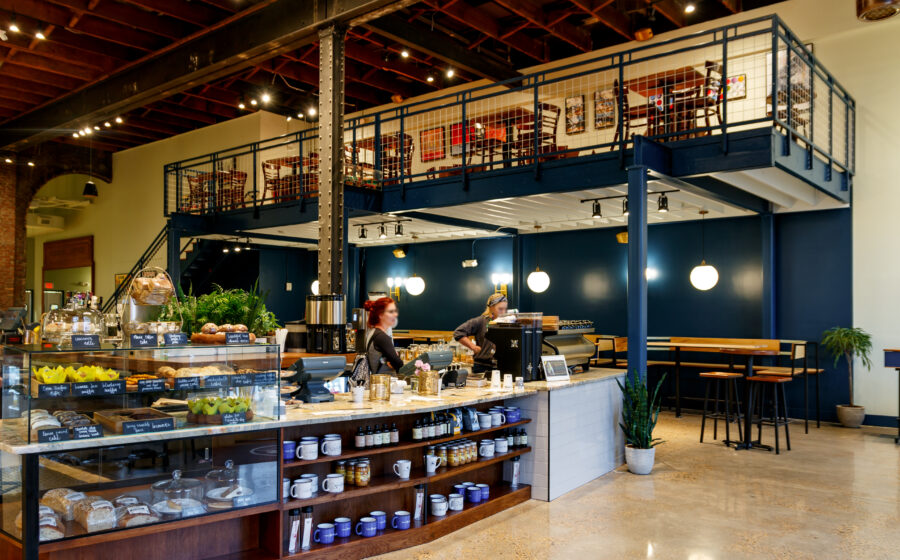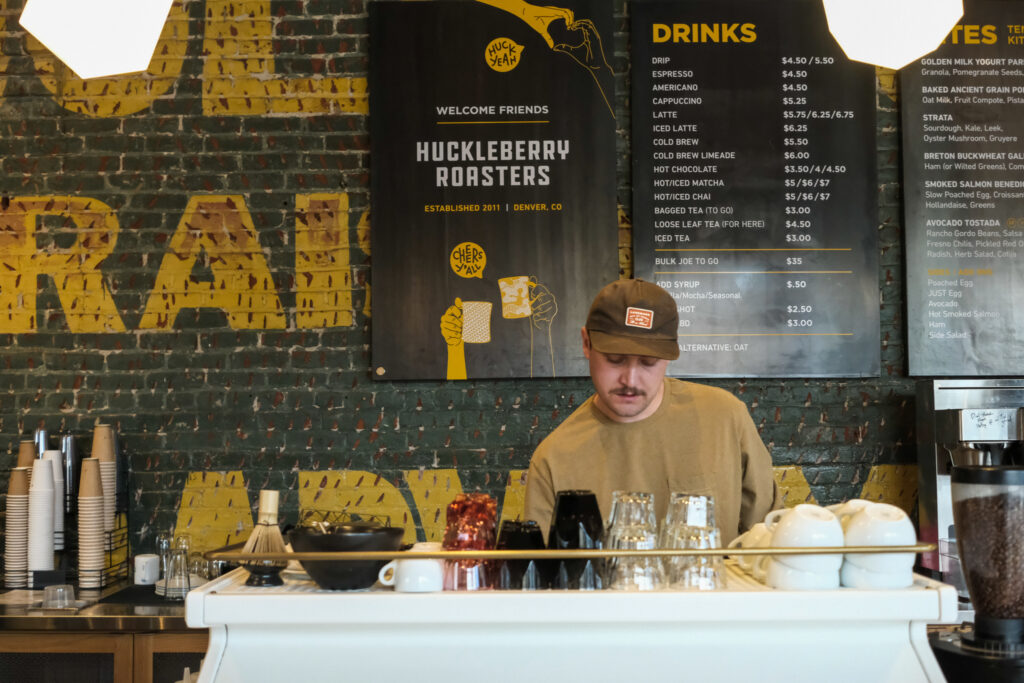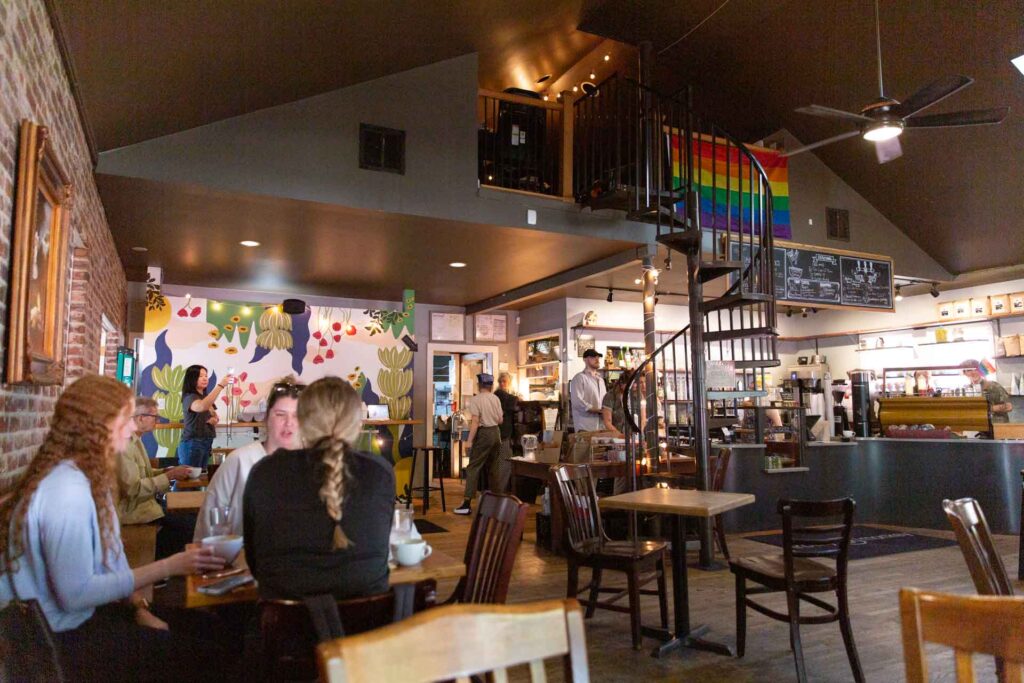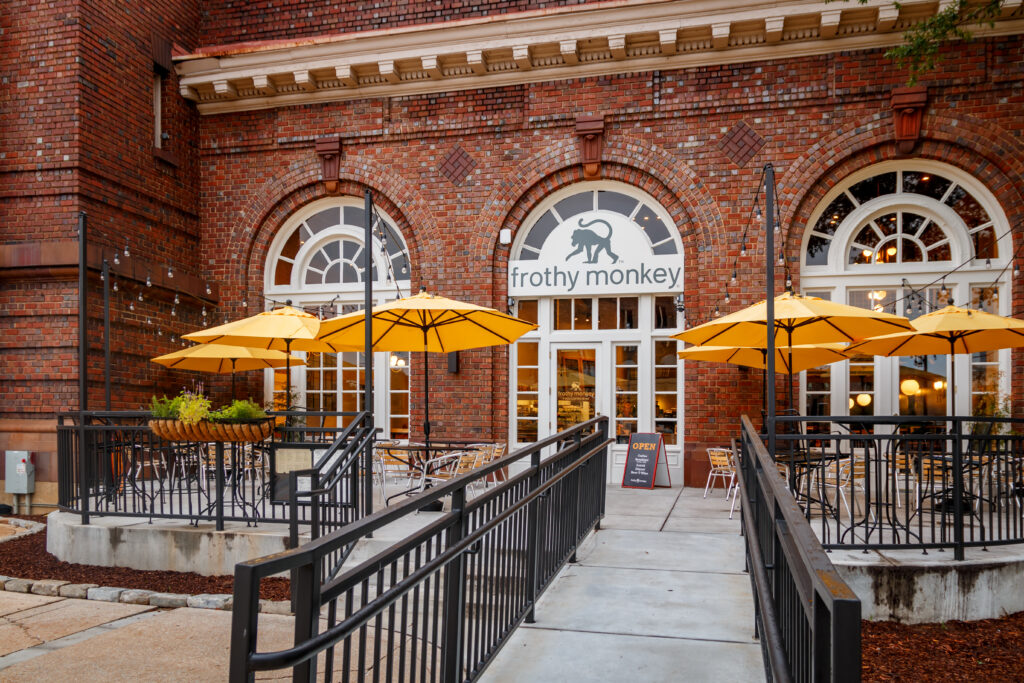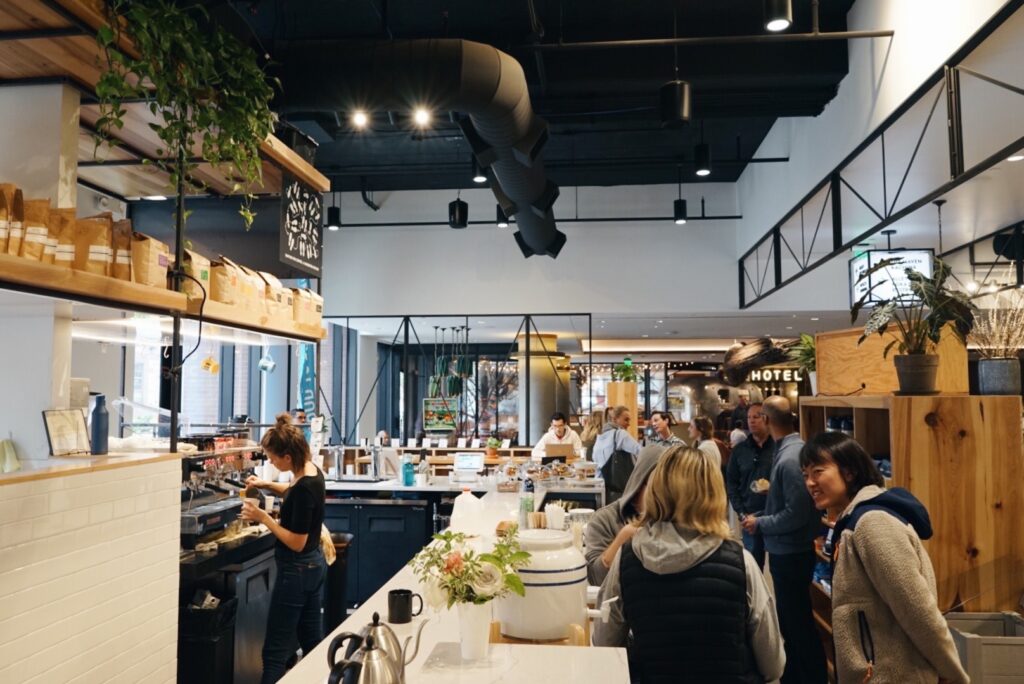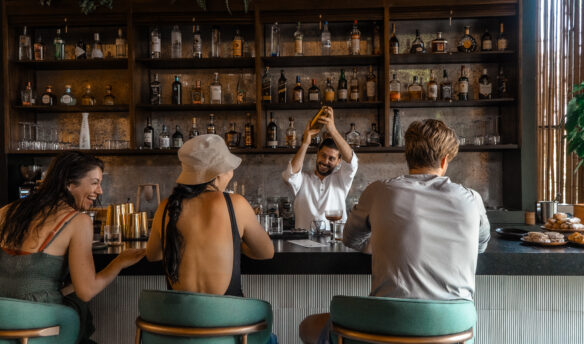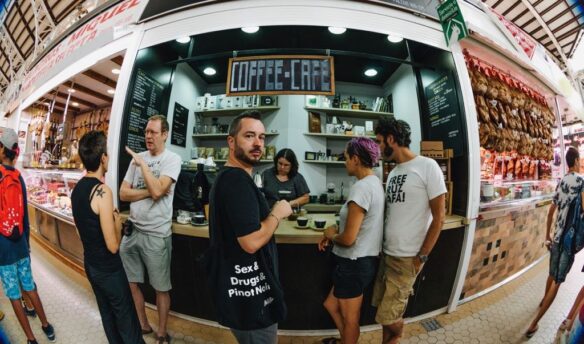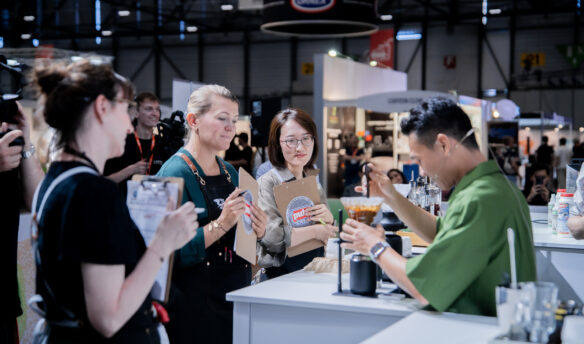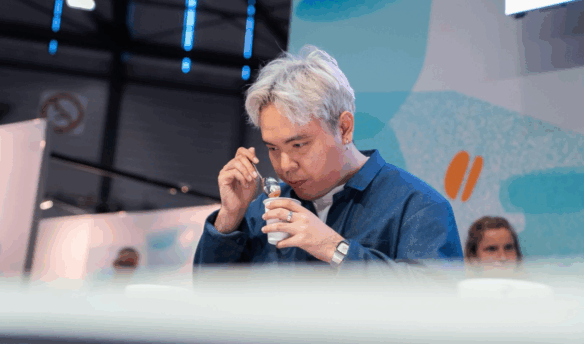Building a loyal customer base for your coffee shop starts with delivering consistent quality, from perfectly roasted beans to beautiful drinks with latte art. But what makes a café truly great beyond the coffee it serves?
That’s where the importance of cultivating a strong team that feels safe, empowered, and ready to serve customers comes in. A well-trained and cared for staff who are engaged in their work and motivated to deliver exceptional service can take your café from average to unforgettable. Customers remember the quality of service just as much as the quality of their drinks—inspiring consistency and high-level service starts at the top with leadership and radiates out into every facet of your cafe.
For visionary leaders, coffee is more than just a drink. It’s a powerful tool for inspiring purposeful work among their teams, fostering a culture of consistency and excellence that elevates every customer experience.
Cultivating Employee Happiness
Every year, Koan Goedman and Jason Farrar of Huckleberry Roasters in Denver, Colo., organize a “State of the Huck” meeting with team members across their coffee shops and warehouse crew. This meeting serves as a platform for discussing bigger picture ideas, like the vision and goals for the business, and the nitty-gritty details, like profit and loss statements and individual shop or warehouse numbers.
But Goedman says one significant part of the conversation is rooted in the mission of Huckleberry: building relationships with their staff and offering possibilities for continued growth.
An industry veteran, Goedman recalls how difficult it was to find ways to expand his job responsibilities—and earning potential—when he first started working in coffee in 2006. “Back then, there were very few ways that you could carve out some space for yourself to grow in a meaningful way.”
Huckleberry’s commitment to developing its staff and providing opportunities for advancement has helped fuel its success, resulting in the opening of its fourth location in November 2022 and a fifth location slated for summer 2023.
By investing in their team’s growth and development, Huckleberry has built a loyal workforce that shares the company’s values and vision. “Retention has been high,” notes Goedman, “because we’re open and willing to have a conversation about how people see themselves growing and figuring out if we can do that together.”
The hospitality industry experiences high turnover (66.3%) compared to other sectors, often due to stagnant wages or lack of career advancement. But Huckleberry stands out: several team members have been with the company for 5-8 years, and some have even reached the impressive milestone of a decade with the company.
“We always start promoting from within,” Goedman explains. “If somebody’s already at the GM level, we ask ourselves, ‘What’s next for that person?’ and work to keep them engaged so they don’t feel the ceiling is starting to come too close for their ability to grow within Huckleberry.”
Valuing employees pays off in more ways than one. Happy employees who feel appreciated and supported are more likely to stay with a company long-term, leading to a team that knows the business inside and out and can provide consistent service to customers.
A Shared Vision
Frothy Monkey, a beloved Nashville-based coffee chain, credits much of its success to a single concept: warmth. To them, creating a welcoming atmosphere and experience isn’t just a core value but the secret to building a loyal customer base.
According to owner Ryan Pruitt, warmth begins with the café’s aesthetic and location, but it’s the employees who truly set the tone. Frothy Monkey prides itself on recruiting warm and friendly staff members, believing they’re the heart of the customer experience. “You’ve got to start with warm and friendly people to attract more. That’s where the energy comes from,” he emphasizes.
The skill sets needed to make delicious food and beverages are all teachable things, according to Pruitt. “We’re attracted to warm people with a willingness to learn.”
During the hiring process, Frothy Monkey looks at how candidates interact with others during the interview—are they warm, friendly, and approachable? Leaders also ask questions that let candidates share stories about times they learned something new and how they handled it can help you understand how they learn and adapt.
But Frothy Monkey didn’t always have a set of established core values. It wasn’t until the chain had extended its reach to multiple locations and hired over 290 employees that they recognized the necessity of having a clear set of principles to guide their team.
As Pruitt recounts, “It was a wake-up call for us. We opened two new locations in 2017, which took our headcount from about 150 people to 290. We had that ‘oh no’ realization of how do we teach these people how to Frothy?”
That’s when Frothy Monkey established their six core values: quality, relationships, warmth, grit, growth and development, and execution. Yet, accepting core values didn’t come naturally to Frothy Monkey. “We always had a healthy fear of becoming corporate,” Pruitt admits. “The cool thing is our values were already in place—we just hadn’t organized them into words yet to teach our team what they are.”
Frothy Monkey had already established three locations, but their fifth location would open in Chattanooga, a two-hour drive from their home city. This expansion made it clear that they needed to establish formal systems.
“Our relationship and grit values are what got us through the early days, but the execution was what we were weakest at because we didn’t have those systems in place,” says Pruitt.
“Retention has been high because we’re open and willing to have a conversation about how people see themselves growing and figuring out if we can do that together.” Koan Goedman, huckleberry roasters
As they grew, Pruitt’s job shifted to making sure their systems didn’t squash creativity. He recognized the importance of letting the creative team have a voice in shaping these systems, even though it added more time to the process. “We went from having no documented training in the early days to putting out a training manual that was 100 pages long,” adds Pruitt.
At Frothy Monkey, they learned that growth required more than just good relationships and values. It required systems that could keep up with the demand for their products and services while maintaining the creativity that had gotten them to where they were.
Pruitt shares they invest in multiple training sessions to ensure their employees align with the company’s vision and values. The first session focuses on cultural training, introducing employees to the company’s values and coffee culture from the start.
The second session covers product knowledge, ensuring employees are well-versed with the items served at Frothy Monkey. “It’s an all-day cafe model so there’s a lot of information—product knowledge is key,” says Pruitt. “The more comfortable you get with the information, the more comfortable you can make your guests feel.”
Frothy Monkey’s management style emphasizes ongoing learning and development. This approach emphasizes that hospitality is a two-way street where a company must treat its employees with the same care and respect they give to their guests.
“The most important thing about training is never to stop training. Even if your employee has been in their position or role for 10 years, there’s still training to do,” says Pruitt. “Becoming a hospitality professional and making people feel great is a race with no end. You’re constantly learning discernment of people.”
Scaling Up Systems
Building systems and processes for sustained growth and success is a marathon, not a sprint. “It was too much for me to do,” Goedman says, “I was trying to hold on to being able to wear all the hats.”
Everything got harder for Goedman when Huckleberry expanded to multiple locations and added warehouse operations into the mix by opening a roastery. As the company grew, the size of the staff tripled too. It became clear that their existing way of operating, where the two owners tried to handle everything, was no longer sustainable. “At some point, you have to recognize that the machine works better when amazing, capable employees are helping you,” he says.
Pruitt agrees that putting systems in place takes a mindset shift for many leaders—one that didn’t happen for Frothy Monkey until they expanded outside their hometown. “We were a little slow as adopters, but systems and processes are instrumental to growth,” he advises. “They’re not just for the corporate environment—you need to have them in place.”
As part of streamlining their customer experience and ensuring consistency across locations, Frothy Monkey has implemented a proven process for guests. This process outlines the entire cycle a guest completes from arrival to departure. Once they wrote down the steps, leadership documented and integrated the customer cycle into their training and onboarding manuals.
But it’s not just about the technical aspects of service. As Pruitt explains, “You can put systems in place to even teach and train emotional skills, even down to the vernacular of the words that you use.” For example, using the term “guest” instead of “customer” instills a sense of hospitality rather than just a transactional exchange.
At Huckleberry, the owners invested a lot of time into creating communication, company, and employee manuals. Although these documents may not sound exciting to build, they serve an important purpose in ensuring that all employees are on the same page. “It puts everybody on an even playing field,” Goedman says.
Confusion about policies and procedures can cause chaos and potential problems in a busy cafe. However, training documents provide a consistent framework and ensure everyone has access to the same information and resources. From the newest hire to the CEO, everyone benefits from having clear guidelines to follow.
We were a little slow as adopters, but systems and processes are instrumental to growth. They’re not just for the corporate environment—you need to have them in place. Ryan Pruitt, frothy monkey
For example, their team uses Google Drive to store documents, including onboarding materials, manuals, recipe cards, and employee bios that are readily accessible to all. Additionally, all employees go through the same onboarding process to learn about Huckleberry’s mission and value statements.
Creating structure doesn’t have to mean sacrificing the human touch or personality of customer service. “It creates structure for people to still have flexibility within their emotional skills and ability to really take care of guests,” Pruitt says. Rules and guidelines offer structure that allows all workers to feel like they can succeed and provides boundaries to know when to ask for assistance if customers are behaving poorly.
In the end, great coffee alone isn’t enough to keep customers coming back. Consistency is key, and that’s where formal systems come in. By creating documented processes and guidelines, café owners can ensure that staff feel supported, are empowered to act in situations, and confidently provide a product and an experience for every customer at the same high standard.



